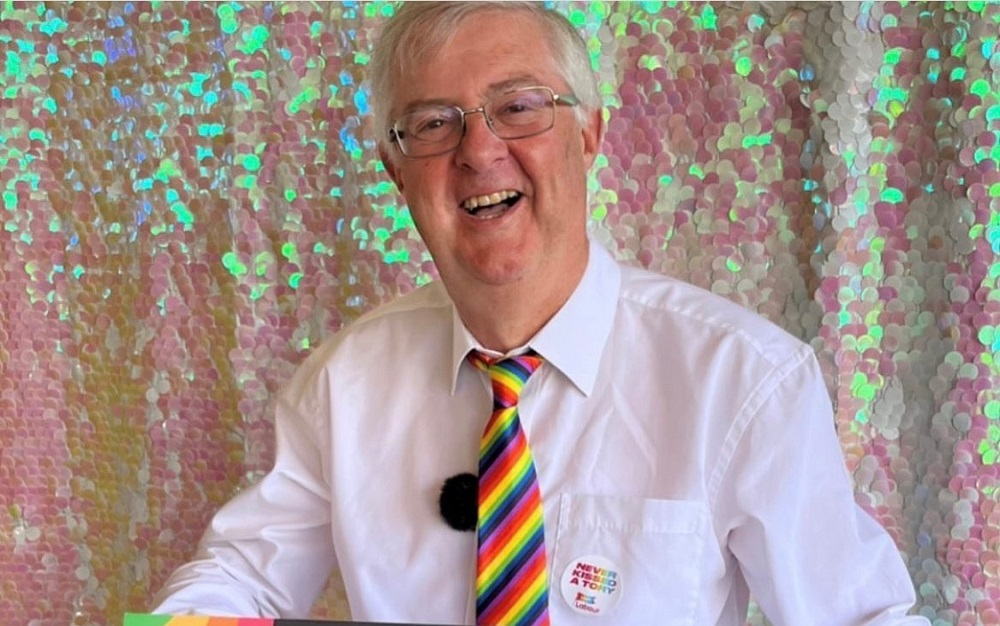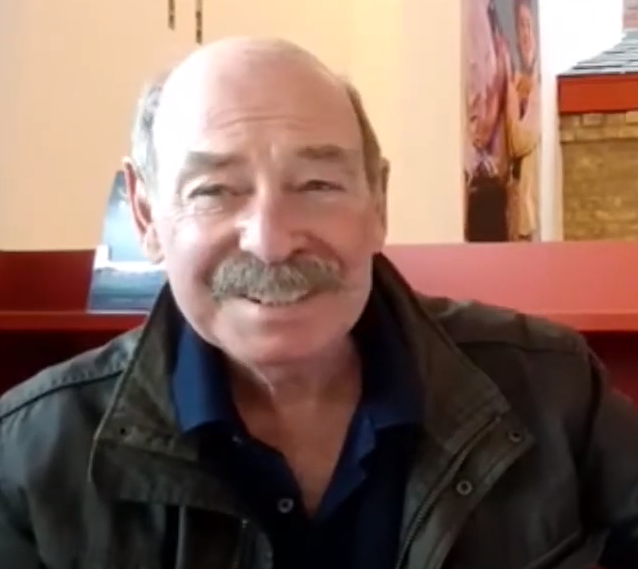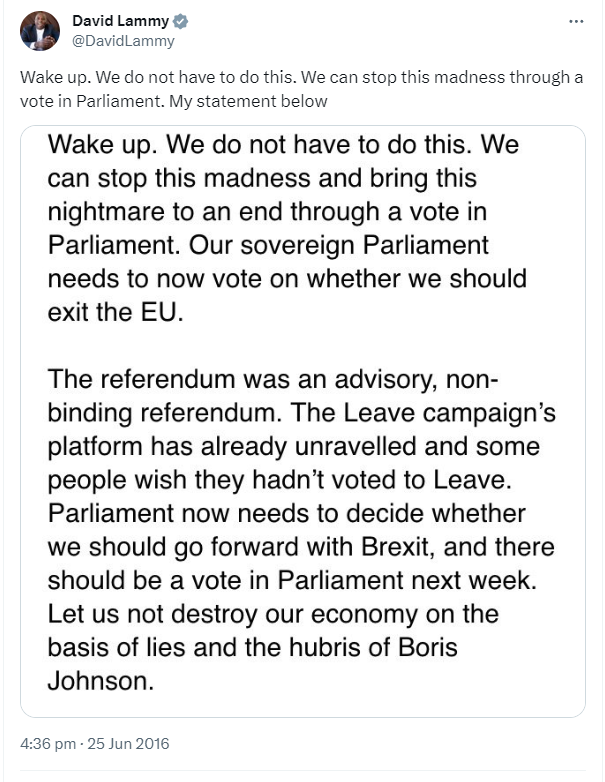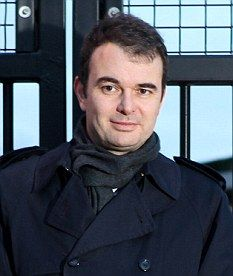NEW PODCAST: Twenty Minute Topic Episode 69: The Royal Family In Crisis
By MARCUS STEAD
The Princess of Wales has revealed in a video message that in January, she underwent major abdominal surgery. While the surgery was successful, tests after the operation showed that cancer had been present, and she is now undergoing a course of preventative chemotherapy.
Kate’s announcement is yet another setback for the Royal Family, following the news last month that the King has a form of cancer, and the Duchess of York has revealed that she, too, is suffering from a form of skin cancer.
We send our best wishes to all three and will be remembering them in our prayers.
In this podcast, Marcus Stead and Greg Lance-Watkins discuss whether the recent difficulties could have been handled better by the Royal Family’s public relations team, and whether the clumsiness of it all played straight into the hands of vile trolls who have been spreading cruel and malicious rumours about the Princess of Wales.
The Mother’s Day photo that was pulled appears to be a collage of other photos blended together. The image of Catherine looks like one that appeared on the front of Vogue magazine some time ago.


The grainy video of Kate ‘out shopping’ with William that The Sun ran as an exclusive in the days before her announcement is certainly very odd. The woman in it looks to be no older than her late teens or early 20s, and her facial features are different to Kate’s. We also do not see a clear image of William to identify it as him.

Good public relations is about clarity and controlling the story, and Kensington Palace have failed in those objectives.
The discussion moves on to wider themes – where is the line to be drawn between the public having ‘the right to know’ and respect for the privacy of the Royal Family? What can be done about online trolls, who can spread appalling rumours without consequence?
Prince Harry and Meghan have burnt their bridges with the Royal Family – if they had handled things differently in recent years, they could have held the fort while other senior members of the family receive treatment and recuperate in the months ahead. Their narcissistic behaviour means that is not possible.
The podcast is available on the Talk Podcasts website, iTunes, Google Podcasts, SoundCloud, Spotify and the iTunes app.
Mark Drakeford’s most dangerous legacy
By MARCUS STEAD
Mark Drakeford’s tenure as First Minister of Wales is over, and there is little to celebrate from his five-year tenure.
The Welsh NHS, which lurched from crisis to crisis during his three years as Minister for Health between 2013-2016, continues to go from bad to worse, with appalling A&E waiting times, dangerously long waiting lists for important operations and extreme difficulty in getting GP appointments.
Welsh educational attainment goes from bad to worse as the country continues to slip down the internationally-recognised PISA rankings.
Drakeford’s handling of the pandemic saw countless businesses needlessly ruined, families kept apart for long periods without good reason and absurd policies of being different from England for its own sake. The devastating impact of Drakeford’s Covid policies on children’s education, mental health, small businesses and the way so many once-active older people have become more reclusive and withdrawn has still not yet been properly understood.
Like a very large number of Labour politicians, Drakeford has never worked in the private sector. Prior to becoming a member of what was then the Welsh Assembly in 2011, Drakeford worked as a teacher, a social worker, a probation officer, a youth justice worker, a university lecturer and the Welsh Government’s special adviser on health and social policy.
This sort of career path is very common among Labour elected representatives in both Cardiff Bay and Westminster. There are lots of former trade union workers, charity workers, third sector workers, ex-teachers, ex-social workers, ex-university lecturers, ex-civil servants, ex-special advisers and so on.
What there is little of is people who have spent at least part of their careers in the private sector. Indeed, there is not much evidence that Drakeford has ever really even encountered the private sector. People without private sector experience often have little comprehension of how wealth is created. They often have very little interest in the private sector, and are sometimes downright suspicious of it.
With the successes of the Welsh Development Agency attracting inward investment in the 1980s and 90s now a distant memory, the skilled private sector in Wales is grossly under-developed, and Drakeford showed little interest in rectifying the situation. It may well be that he rather likes the reality that vast swathes of the Welsh population are either directly or indirectly dependent on the Welsh Government for their salary, and are therefore more likely to vote Labour.
All of Mark Drakeford’s legacy is bad, but an especially, indeed highly disturbing aspect is the way in which Relationships and Sexuality Education (RSE) is now compulsory in primary schools for children aged SEVEN and above. Parents do not have the right to remove their children from these classes. What is especially disturbing is the possible influence campaign group Stonewall has had on forming Welsh Government policy.
Parents no longer have the right to inform their children about the birds and the bees at an age they consider to be appropriate, using language they consider to be appropriate, that align with their religious and moral values. This is a dangerous invasion of parental rights by a far-left government.
In 2015, Stonewall went from being an LGB organisation to one that endorsed LGBTQ+. Many gay and lesbian people have distanced themselves from the organisation in the years since.
Stonewall is a firm defender of the belief that people should be able to self-identify with the gender they choose, but has also been accused of attempting to stifle free speech on the issue and push companies to adopt policies that some argue could be harmful to women.
A number of high-profile employers, which had been part of its Diversity Champions programme to promote inclusivity in the workplace, have ended their partnerships with the charity. Among them are Channel 4, Ofsted, the Cabinet Office, and the UK’s equality watchdog, the Equality and Human Rights Commission (EHRC), the latter two of which said the scheme no longer provided good value for money.
Broadcaster Simon Fanshawe was one of the co-founders of the British version of Stonewall in May 1989, but he has now cut all links with the organisation due to the direction in which it has gone during recent years.
In Mr Fanshawe’s own words: “Far from championing a ‘diversity’ of opinions and beliefs, subscription to Stonewall’s scheme encourages a strict adoption of a narrow political ideology.
“Companies, for instance, have been urged to replace references to ‘women’ or ‘mothers’ in internal documentation in favour of terms such as ‘parent who has given birth’, or to ask that employees state their ‘preferred pronouns’ in emails.
“Stonewall also scores firms based on an ‘Equality Index’ marking firms down for a failure to parrot the charity’s narrow views on ‘gender identity’ and trans issues.
“While Stonewall started out as a well-meaning organisation that championed gay rights, it has, in recent years, morphed into a propaganda machine that preaches extreme and divisive gender ideology under the guise of ‘factual’ information. It is dogma that is far from universally accepted seeing your sex at birth not as an immutable fact but as open to personal choice.
“And it is one that is fast eroding women’s rights and their protection in female-only spaces, as well as posing a potential risk to children, who might be led to believe that irreversible medical intervention is the solution to common adolescent insecurities about identity.
“Of course, gender dysphoria (when somebody feels at odds with their biological sex) is a genuine and profound psychological issue for some people. But Stonewall’s obsession with reframing the entire narrative around gender to placate a very small minority of individuals is dangerously disproportionate.
“And the problem is, Stonewall’s influence is not insignificant. From government departments to media organisations, schools and the NHS, the charity’s reach has grown rapidly in recent years, offering highly contested ‘advice’ to public bodies with almost unquestioned authority.
“Stonewall has published a wide-ranging reading list aimed at ‘schools, colleges, parents and carers’, including books on ‘trans inclusion’ for children as young as two, with titles such as Are You A Boy Or Are You A Girl?”
The Welsh Government handed Stonewall £552,326 of taxpayers’ money between 2015-19, long after it repositioned itself as an LGBTQ+ organisation. It gets worse. Accounts show Stonewall received £100,000 from the Welsh Government in grants during the year ending March 31, 2023. Stonewall also received £89,700 from the Arts Council of Wales and £52,971 from the Welsh Council for Voluntary Action.
More than 300 schools have been told to stop calling pupils ‘boys and girls’ after signing up to Stonewall’s School & College Champions programme. Schools receive awards if they ‘remove any unnecessarily gendered language’. This is the reality of where we’re at in 2024.
How is this relevant to Drakeford’s compulsory RSE policy, implemented by Jeremy Miles, the Education Minister?
Take a look at the 14-page Welsh Government document for teachers titled ‘The Curriculum for Wales – Relationships and Sexuality Education Code’. This is where the clues are as to where Stonewall just might be influencing Welsh Government policy, and the rather, how shall I put this…’non-traditional’ mindset of Drakeford and Miles.
It mentions ‘sexuality’ and ‘diversity’ 11 times each, along with five references to ‘LGBTQ+’ and the word ‘sexual’ appears 22 times. The words ‘love’, ‘boy’, ‘girl’, ‘male’, ‘female’, ‘man’ and ‘woman’ do not appear AT ALL, while the word ‘marriage’ appears only ONCE.
Close reading of the document reveals that from the age of just SEVEN, children will be taught:

One has to wonder why Drakeford and Miles are so keen on brainwashing young, innocent children. Parental values, family values and religious values have been superseded by the values of a far-left government.
There have always been ‘tomboy’ girls who prefer climbing trees and playing football to dolls and make-up. There have always been boys with effeminate personalities who pursue interests such as ballet dancing rather than rugby.
Very often, there is nothing more to it than that. As they get older, they may conclude they are homosexual, as is their right.
But exposing children to dangerous, sexualised messages in recent years has led to many with such traits to conclude, wrongly, that they have gender dysmorphia, and have been given drugs to block puberty, which has led to devastating consequences. Last summer, we learned that 1,000 families were suing the Tavistock Gender Service after wrongly being given such drugs, and as a result the law firm representing them said they were facing a “physical and psychological permanent scarring that will last the rest of these victims’ lifetimes.”
Earlier this month, the UK Government announced that children in England would be banned from receiving puberty-blocking drugs on the NHS with immediate effect. Former Prime Minister Liz Truss called on the ban to be extended to private practises. Soon afterwards, the Northern Ireland Government said it would be extending the ban to its area. But from the Welsh Government? Nothing.
In this day and age, most reasonable people have sympathy with the tiny number of the population who were ‘born into the wrong body’, and will support them if they choose to have surgery AS ADULTS to correct this. The late writer Jan Morris is an example of a person who underwent such a medical procedure, yet she is known and remembered for her impressive work and her engaging personality, NOT her ‘gender identity’.
Beyond the oddballs and weirdos that have huge influence over the Labour Party, most regular, everyday people believe that there are TWO genders, a woman cannot have a penis, and that the definition of a woman is an ADULT FEMALE.
Most people, including many everyday people who happen to be homosexual, also believe that, under normal circumstances, it is the job of the parents, not the state, to educate children in their own way, and in their own time, about relationships and sex. And in most cases, they will wish to do so when their children are considerably older than seven.
People can draw their own conclusions as to why Drakeford and Miles are so keen to talk about sex to other people’s children. But parents deserve to know what values and standards are being imposed on their children by the Welsh Government and its hangers on.
I urge all parents to take half-an-hour to carefully read ‘The Curriculum for Wales – Relationships and Sexuality Education Code’, and to then react as they see fit.
Clickbait Codswallop!
How clickbait is destroying bonds of trust between longstanding media titles and their readers
By MARCUS STEAD
Building up trust is like watching a tree grow. It can take many years for a tree to reach its potential, yet it can be destroyed with one crass act of vandalism.
All our national newspapers, as print titles, are in trouble. Hardly anybody under the age of 50 is in the habit of buying a daily newspaper. The overwhelming majority of national newspaper sales are to older people who have been buying that paper for decades and are creatures of habit.
But as older people die off, they are not being replaced by younger readers. And a significant number of middle aged and older people who are still very much with us have got out of the habit of buying newspapers, particularly those who are comfortable with technology.
The scale of the decline in newspaper sales is enormous. During the 1960s, the Daily Mirror sold more than 5 million copies per day. In 1978, circulation of The Sun was higher than that of the Mirror for the first time, but it still sold 3.5 million copies per day. In April 2003, the Mirror’s circulation fell below 3 million, largely as a consequence of the internet becoming more developed and integral to our lives in the preceding few years.
The Daily Mirror’s circulation steadily fell year by year, but the speed of its decline has been particularly rapid in the last few years. In December 2016, circulation stood at 716,923, dropping to 587,803 the following year. By November 2023, circulation had fallen to 245,829, meaning it had more than halved in six years, and was ONE FOURTEENTH the size it was in the early 2000s. Or to put it another way, the Daily Mirror’s circulation has fallen by 92% since the early 2000s.
It is a similar story with all UK newspapers, though some drops are more severe than others. In the case of The Sun, circulation has dropped from 4.3 million in 1994 to 1.2 million in 2020, at which point its owner, News UK, instructed Audit Bureau of Circulations that its circulation data should be kept private, and would only be shared with advertising agencies in confidence.
It is hard to see how physical, paid-for newspapers will have any kind of future beyond the next five years. But the newspaper brands, some of which are centuries old, have a value, as they have been a presence in all our lives since childhood, even if we never bought the paper.
Newspaper groups have not really cracked the conundrum of how to make money when few people under the age of 50 are buying newspapers. The Telegraph has gone down the paywall route, and in recent weeks, Mail Online has done the same for much of its most interesting content, especially its columnists.
But a lot of newspapers, particularly local papers, have gone down the clickbait route. The basic principle is this: They entice the reader in with a misleading, even alarmist headline. The reader clicks on it and it soon transpires that the story is nowhere near as exciting or dramatic as it sounds. They then find that the page takes a long time to load and is so cluttered with advertising and pop-ups that it becomes unreadable. We’ll look into some examples of this in a moment.
For every click, the website’s owner receives a tiny sum of money. There is a fundamental point about clickbait that is important to understand: As a business model, it never did work that well, and it certainly does not work nowadays.
Reach PLC, owner of the Daily Mirror, Sunday Mirror The People, the Daily and Sunday Express, the Daily Star/Daily Star Sunday and a large number of local newspapers around the country, culled around 550 staff in July 2020 (approximately 12% of its workforce at the time) in response to the pandemic. They have now gone much further and have cut around 800 jobs in the last year alone. They recently announced plans to cull a further 450 jobs in the months ahead, that is around 10% of its workforce in an effort to trim operating costs between 5-6%.
The value of Reach PLC has slumped 30% over the last year as social media platforms, especially Facebook, deprioritised news, which damaged their digital revenue strategy.
In its third quarter trading update, Reach PLC reported a 13.7% drop in digital revenue, with online page views slumping 21% year-on-year for the first nine months of 2023. Income from Reach PLC’s newspaper sales and advertising continue to decline, and print revenues fell 6% over the same period.
Reach PLC made the popular Daily Mirror editor-in-chief Alison Philips redundant in January 2024. That Reach PLC’s editor-in-chief Lloyd Embley left the company last July after 30 years.
Reach PLC’s share price has fallen by around 30% in the last year alone, and at the time of writing trades at 63.80.
In other words, all the signs are there that clickbait is not a money spinner. Readers are increasingly aware of the ‘clickbait’ methods and are irritated by it. These methods are by no means exclusive to Reach PLC’s titles.
While not making the titles much money, clickbait is doing immense damage to the bonds of trust that have been built up between the brand and the reader over many decades.
Take this example from the Express website in March 2022, which states that ITV is ‘cancelling’ Emmerdale. Many fans of the popular soap would have clicked on the link, alarmed at the prospect of it being axed, only to discover the more mundane truth as they read down the article – it was being rested for just one evening to make way for live FA Cup football. There was nothing more to it than that.
Misleading readers in this way does immense damage to the bond of trust that exists between the brand and the reader.
Another ‘clickbait trick’ is to describe somebody who was in a popular programme many decades ago, but has inevitably aged with time, as being ‘barely recognisable’ or ‘unrecognisable’. In 2022 and 2023, The Sun went down this route a number of times with stars of Only Fools and Horses.
Businessman Alan Parry, father of Rodney’s wife Cassandra, was played by New Zealand actor Denis Lill, who was 79 when the ‘story’ broke.
Now, let us look at the evidence. Here is Denis at the time he appeared in a handful of episodes of Only Fools and Horses in the late 1980s and early 1990s…
…and here he is in 2019, a little greyer, but instantly recognisable!
All the stars of Only Fools and Horses received the same treatment from The Sun’s clickbait factory around that time. Paul Barber, who played Denzil, has gone grey and is thinner on top, but is hardly ‘unrecognisable’ and still appears on TV regularly.
Sometimes, The Sun has taken this concept to absurd proportions. Benjamin Smith, who played Damien Trotter in latter episodes, was only about ten years old at the time. It is to be expected that his appearance has changed by the time he reached his early 30s, and yet…
‘Unrecognisable’ is a term used to household names who dress differently when not on TV. Here is BBC Breakfast presenter Naga Munchetty taking a walk around Manchester city centre while not in work, in casual attire and smoking a cigarette:
Anyone who watched BBC Breakfast would recognise her straight away – yet because she is dressed differently away from the camera she is described as ‘unrecognisable’, which is beyond ridiculous.
And yet things get worse if you keep scrolling down on some news website, particularly those owned by Reach. They rely on companies like Taboola, Outbrain, Revcontent and Adblade to promote fake stories boost their revenues. Taboola is the one you are most likely to have seen by reading websites owned by Reach PLC.
These lies take on downright nasty proportions. Here is a picture of BBC Breakfast presenter Charlie Stayt and BBC Radio 3 and BBC Proms presenter Katie Derham. Both are married TO OTHER PEOPLE, and yet:
Over on ITV, Good Morning Britain presenter Susanna Reid has NEVER been married to ANYBODY, male or female, and yet…
And here’s Susanna again ‘stepping out’ with her non-existent ‘wife’:
ITV News Political Editor Robert Peston was married to Sian Busby from 1998 until her death in 2012. Several years later, he began a relationship with Charlotte Edwardes, and they are still together. There is no ‘boyfriend’. And yet…
Even more seriously, last December, Outbrain brought us this about Kate Garraway. Her husband, Derek Draper, was left needing round-the-clock care as a result of Covid, and sadly died a few weeks after this outright lie appeared:
A similar story appeared on the clickbait feeds just one day after Derek died.
Another trick is to describe anyone who is taking some time away from a role as being ‘replaced’, whether it’s a TV presenter or a West End star. Take this example from Cheryl’s West End Show from March last year:
Cheryl took two days off. It was planned well in advance, and a replacement actress was very well-prepared for it. People buying tickets knew they would not be seeing Cheryl. There is no story at all in this.
Apparently ‘not many people realize [sic] these superstars are still alive’. The names on the list include Natasha Kaplinsky, who has merely taken a step back from the public eye, Bill Nighy, who is still on TV/in the cinema a lot, and Sir Richard Branson, who is always up to something. But it also includes the likes of Olivia Newton-John, who sadly died in 2022:
Never underestimate just how low these titles will sink in their bid to attract clickbait, either through Taboola (or similar) feeds, or via their own so-called journalism.
Here is one particularly grotesque example: In January 2023, talented snooker player Riley Powell, then aged 14, caused a sensation at the Shoot-Out tournament when he defeated Kyren Wilson, a leading professional player.
In the post-match interview, Powell was asked about what it was like practising at the same club in Tredegar as three-time world champion Mark Williams. Powell responded that Williams was a great source of encouragement and support, but that he also ‘gave him some abuse’ sometimes as well.
Anyone with an ounce of intelligence would have understood what Powell meant by this, namely banter and a bit of stick during practice sessions. And yet the Mirror’s website came up with this:
The headline was changed within a few days, but how many people clicked on that headline believing the very dark connotations behind it?
Newspaper brands are destroying their long-held reputations by writing misleading headlines, and by allowing Taboola (and similar) feeds to appear on their sites. The general public, namely their consumers, are becoming increasingly aware of the nature of this, and it is not only damaging their titles, but it undermines the integrity of the industry as a whole.
Be careful what you wish for! Sir Keir Starmer may seem boring and staid, but underneath the sharp suits and bland demeanour lies a Pabloist revolutionary who could do immense harm to Great Britain
By MARCUS STEAD
Modern-day elections are won and lost in medium-sized towns. The big cities, usually heavily-reliant on the public sector, higher education sector and third sector for employment, are where many of the safe Labour seats can be found. Rural areas usually vote Conservative. But the medium-sized towns are where the key election battles take place.
The reasons for this are easy to understand when we look at the demography of these towns. There has been a huge surge in the number of people using the railways in the last 30 years, but this has nothing to do with the supposed ‘success’ of privatisation, and everything to do with the reality that people need to commute far greater distances to get to their place of work than in the past due to the high cost of housing in cities.
Indeed, Christian Wolmar’s book British Rail – The Making and Breaking of Our Trains rightly points out that, by the late 1980s and into the 1990s, British Rail was actually very well run, unfairly maligned and then ruthlessly broken up and privatised.
For those wishing to start a family in a decent-sized home big enough for a dining table, and a proper garden for parents to relax in and children to play in, living in a town within commuting distance of a city is their best hope.
The longer-term residents of these towns have a slightly different set of experiences. The manufacturing jobs that disappeared in the 1970s and 80s have never really been replaced. There are only so many jobs in the local supermarket. The ‘big time’ employer in the town, whether it be coal, steel, quarrying, potteries or something else, have been lost without anything comparable in terms of employment levels taking over.
The voters in these towns could once have been relied upon to vote Labour, but with changing demography and a changing Labour Party, people were more open to the possibility of voting for somebody else by the time of the 2019 election.
Most of these towns were solid Brexit-supporting territory at the time of the 2016 referendum. There was no single reason for this, but it can be put down to a combination of factors. The impact of uncontrolled mass immigration was one big reason, but it was not the only one. In the more fashionable parts of London, uncontrolled mass immigration means a ready supply of cheap nannies and waitresses in trendy restaurants. In the medium-sized towns, it means pressure on the available housing stock, the suppression of wages and problems with community cohesion.
These differences in viewpoint were borne out on social media in the immediate aftermath of the 2016 referendum. Within hours of the result being announced, social media was awash with apparently-educated younger people living in the big cities (especially London), with lots of funky, BBC-esque opinions making references to ‘thick northerners’, the ‘racist north’.
It was also not uncommon for these people to make hateful comments about older generations, including their own grandparents, and it was all-too-typical for them to say that many Brexit voters would be dead soon. In reality, the majority of voters in ALL age groups over 45 voted Leave. It is also worth pointing out, as I did in this article in November 2016, that a very large number of middle class, educated people voted Leave. Bitter remainers who still don’t accept the result of the referendum eight years later like to peddle the myth that Brexit voters were poorly-educated older people who have often since died. The truth is altogether different.

Concerns about the impact of uncontrolled mass immigration were not the only reason people in these medium-sized towns voted for Brexit. There were many other reasons, not least the lack of democracy and accountability in the EU’s institutions. But no matter what their reasons, the one overriding factor is that life in these towns just isn’t very good. Wages are stagnant; police officers are nowhere to be seen unless there’s a Pride march on or somebody has used the wrong pronouns; it is virtually impossible to get a GP appointment; the bins don’t get emptied often enough; the local schools are lousy; waiting lists for operations are too long; the local park is dirty and lots more besides.
And this is where Labour got into trouble. In Jeremy Corbyn, Labour was led by someone who people in these medium-sized towns did not see as a British patriot.
Mr Corbyn represented Islington North, the very epitome of trendy, metropolitan opinion. Mr Corbyn’s voters in his own constituency are very much the middle-class public-sector workers, the LGBTQIA+ woke activists with pink hair on one side of their head, shaved on the other and a pin in their nose, the hipster with the beard and the checkered shirt, the kale and avocado eaters, the Glastonbury festival-goers and so on. In other words, their world view is an enormous distance apart from those in the medium-sized towns.
The people of these towns should not be regarded as Thatcherites. They are patriotic Brits, and they rather like the ‘big state’ – reliance on state benefits in these areas are high, they like their ‘big ticket’ infrastructure projects, they are fairly socially conservative and aren’t very big on issues around ‘identity politics’ that Mr Corbyn and his followers spent a lot of time obsessing over.
Mr Corbyn abandoned a lifetime of Bennite euroscepticism to appease his backbenchers and trade union paymasters. In doing so, he lost many old admirers and gained few new ones. The people of these medium-sized towns voted Leave and they meant Leave. In 2017, they reluctantly gave Mr Corbyn the benefit of the doubt, but after two further years of his attempts to delay, frustrate and water down the Brexit they voted for, they were willing to break the habit of a lifetime and give somebody else a try.
They became the ‘red wall’ and took a punt on Boris Johnson. They sort-of-knew his character flaws, they knew he wasn’t ‘one of them’ in terms of class or background, they knew his personal life was chaotic but they chose to ignore it, but in Mr Johnson (who they affectionately referred to as ‘Boris’) they saw someone who made a clear commitment to implementing the Brexit they had voted for more than three years earlier.
Within weeks of Mr Johnson’s election victory, he was faced with the challenges brought by the pandemic. To begin with, not much was known about the virus, how it was transmitted, or where the balance was to be struck between protecting public health and allowing economic and social activity to continue.
It is easy to forget this now, but in those early months of 2020, there was a huge amount of public goodwill towards Mr Johnson. This only began to break down some time after Easter when revelations about Dominic Cummings’s rule-breaking and the misdemeanours of others came to light.
That is not to say that Mr Johnson did not make serious mistakes during this time. All too often, his addresses on TV, and particularly at press conferences, sounded like rallying cries to the Eton Second XV rugger team rather than calmly and precisely-worded addresses to a nation at a serious time. He could and should have also taken the opportunity to suspend devolution to prevent the opportunists Nicola Sturgeon and Mark Drakeford from making up silly rules to be different from England purely to make themselves look important, at a time when the public needed clarity. Once the pandemic was over, and if the pandemic had been well-handled by the Westminster government, the opportunity could have been taken to hold referenda on reversing devolution. Alas, that opportunity was lost.
A big turning point in the change of public opinion came in June 2020, when a far-left mob toppled a statue of philanthropist Edward Coulston in Bristol as part of the ‘Black Lives Matter’ demonstrations. This sent a dangerous message to the public: If your mother, your child, or even your dog is dying, you cannot stay with them because of Covid restrictions – that’s a sacrifice you’re expected to make, but if you feel angry about the statue of a man who died nearly 300 years ago, feel free to be part of a large mob that tears it down and throws it into a river.
It was at the point of the Colston statue incident, and the protests about the death of George Floyd in Minnesota, somewhere few activists could actually point to on a map, that public cynicism about the rules substantially increased.
In the end, Mr Johnson was brought down by the ‘what can I get away with?’ attitude to life that he had demonstrated many times in the decades before, and, it has to be said, that attitude is shared by many of his social class.
Few of us who saw Prince Philip’s funeral in April 2021 will forget the sight of the late Queen, sat alone, away from her family at the service for her husband of 74 years. As she so often did, Her Majesty led by example. Yet we now know that the night before his funeral, Downing St staff held a party that included wine being thrown on walls, fights among staff and the swing in the garden was broken. The ‘what can I get away with?’ attitude of that particular sect was in action.
Mr Johnson was ultimately brought down by a mixture of Partygate, Wallpapergate, the Owen Paterson affair and the Chris Pincher affair.
We should be careful not to overpraise Mr Johnson. Yes, he got Brexit done, and the deal was a rather good one overall, albeit at the expense of throwing Northern Ireland under a bus. The vaccine rollout was efficient. He prevented Jeremy Corbyn from becoming Prime Minister – we should not underestimate the importance of this, since Mr Corbyn is now a convicted antisemite, and he is also a danger to national security, having described Hamas and Hezbollah as his ‘friends’.
But by the same token, Mr Johnson was every bit as committed to ‘green politics’ as Labour has been in recent years (possibly due to the influence of his modish, metropolitan wife Carrie), and he failed to make any meaningful progress at all in terms of ‘levelling up’, namely, repaying the faith shown in him by voters in medium-sized towns and making the country less London-centric.
What followed was a farcical period in which Liz Truss failed to grasp the golden rule of politics – know how much ‘room for manoeuvre’ you have. Margeret Thatcher understood this – she was instinctively cautious, especially in in her first term (something that is now often-forgotten), and only took on the big battles with the mining unions and others later on when she was properly-situated to do so.
The country’s finances were in poor shape before the pandemic, but the lack of economic activity from early 2020 until the end of the pandemic mean the levels of national debt are now eyewatering. Rishi Sunak’s hands have been tied to a certain extent, but there is a sense that he and the people around him either do not understand how to make the most of the freedoms the UK now has, or, perhaps more to the point, they lack the will to properly use them.
For example, there is nothing to stop the government from targeting a constituency in a red wall seat with high unemployment and telling any company that opens an office or factory there employing at least 800 people that they will pay no business rates or VAT for five years. This would have been illegal under EU law, but it is now perfectly possible. It also creates a win-win situation in that it takes people off the unemployment register, meaning they are in work and paying taxes, and after five years, the company will have a skilled, experienced workforce in the area and are likely to stay when the time comes for them to start paying VAT and business rates.
Mr Johnson could, early on, have abandoned the expensive HS2 vanity project and instead committed to a high-speed rail line, for a fraction of the cost, connecting the great northern cities of Liverpool, Manchester, Leeds and Bradford, making it feasible to live in one city (or any of the medium-sized towns in between) and work in another. As things stand, journeys across the Pennines on rail and other forms of public transport take an absurdly long time. Linking the great cities of the north by high-speed rail would have created a population base equivalent to London and a rival economic powerhouse could have been born. But that opportunity has now been lost.
The problem facing people in the medium-sized towns is easy to articulate and can be summed up in a few sentences: The Labour Party ceased to care about people like them long ago. Labour has, for some time, been the party of Islington. As a result, the people in ‘red wall’ seats did something that would have seemed unthinkable even a few years earlier and voted Conservative. Now, they have every reason to feel let down.
That was simple enough to explain. But there is no reason whatsoever to believe that a Labour Party led by Sir Keir Starmer will in any way solve the problem.
Sir Keir’s seat, Holborn and St Pancras is within walking distance of Mr Corbyn’s Islington seat, and while he is better at camouflaging his true beliefs more professionally than his predecessor, there is every reason to believe he is every bit as dangerous.
Let us start with the obvious. Sir Keir is as keen on ‘identity politics’ as his predecessor. Sir Keir cannot answer very basic questions such as: Can a woman have a penis? (Correct answer – no). How many genders are there? (Correct answer – two). And what is a woman? (Correct answer – an adult female).
This picture of Sir Keir ‘taking the knee’ alongside his foul-mouthed deputy leader Angela Rayner could and should be used as an electioneering tool by the Conservatives, accompanied by the word ‘Really?’ in big letters. But it is unlikely they will have the courage to do so.
Sir Keir’s track record when he was Director of Public Prosecutions saw him turn a blind eye to Pakistani grooming gangs abusing underage children – in other words he was putting ‘community cohesion’ before child safety; In October 2009, police interviewed four women who said they were attacked by Sir Jimmy Savile decades earlier when they were 14 – one might reasonably expect that the Crown Prosecution Service (CPS) would have been closely involved in checking that the case was being handled properly – Sir Keir was ultimately responsible for the obviously-wrong decision not to prosecute; he could also have assessed why the Post Office (which as a publicly-owned institution has the power to bypass the CPS and bring its own prosecutions) was accusing so many postmasters with long track records of honesty and integrity of serious fraud and theft – Sir Keir appeared totally disinterested in the possibility that there may have been a serious fault with the Horizon computer system. We now know the devastating consequences of this decision.
But what motivates Sir Keir Starmer? What is the driving force and ambition behind him? You probably will not like the answers, but it does reveal rather a lot about a man who on the surface seems bland, uninspiring and clinical.
It is always worth asking anybody with ambition to hold public office the question, “What is your moral authority in life?”
We all have a moral authority, whether we realise it or not. For some of us, that authority is the Bible or other religious text. For others, they do whatever suits themselves. For others, their authority is popular opinion – they see what’s popular at any given time and align themselves with it because they want to be seen as part of the ‘in crowd’. But what is Sir Keir’s moral authority?
Lots of politically-active students say and do silly things when they are in their teens and early 20s. Getting a proper job, receiving your first tax bill and starting a family are usually accompanied by important steps towards political maturity. But not always.
To answer that question, we need to turn the clock back to 1930, 32 years before Sir Keir was even born. A body called the Haldane Society of Socialist Lawyers was formed to provide legal support to the then-Labour government. Clement Attlee was among its early members.
In 1949, there was an explosive split in the society due to Communist sympathisers infiltrating it. Anti-Communist socialists had tried to break the Haldane Society’s Communist links and narrowly lost a secret ballot.
Almost all senior Labour lawyers in the Haldane Society, including then-Chancellor Sir Stafford Cripps and future Lord Chancellor Gerald Gardiner broke away and formed the Society of Labour Lawyers. This was the body most Labour-supporting legal professionals chose to belong to from this point onwards, and it was from then affiliated to the Labour Party, whereas the Haldane Society’s formal links to the party were cut.
Fast-forward to autumn 1989. Sir Keir Starmer was 27 years old, and, as a young lawyer, he was listed as the Haldane Society’s secretary in the organisation’s official magazine. At the time, it was sympathetic to the British Communist Party.
The Cold War was still in progress, and a list of upcoming resolutions for the forthcoming annual general meeting included: Welcoming Soviet peace proposals; urging the Labour Party to adopt a non-nuclear, non-aligned (ie non-NATO) defence. Sir Keir remained a member of the Haldane Society until 2008, when he was appointed Director of Public Prosecutions and his membership would have constituted a conflict of interest. He was, by this time, in his mid-40s.
In 1986-87, Sir Keir was editor of a magazine called Socialist Alternatives, a turgid, dry publication sympathetic to Trotskyism. The magazine was preoccupied with sexual politics and green issues. Do you get the impression Sir Keir might not have changed very much beneath the smart suit? Keep reading.
In the 1980s, Sir Keir was known as ‘red-green’. He had the opportunity to denounce this in 2020 when he was interviewed by New Statesman interviewer Patrick Maguire, who asked Sir Keir if he was still a ‘red-green’, to which he enthusiastically replied “Yeah!”. He had the opportunity to distance himself from his past, but he did not do so.
Sir Keir’s mindset has been heavily-influenced by a Greek revolutionary who died in 1996 called Michalis Raptis, who liked to be known as Michael Pablo, and developed an ideology called Pabloism. Raptis/Pablo was originally a Trotskyite, but adopted a more modern creed, and his followers were called Pabloites.
Later on in the same interview with the New Statesman in 2020, Sir Keir said: “I don’t think there are big issues on which I’ve changed my mind.
“The big issue we were grappling with then was how the Labour Party, or the Left generally, bound together the wider movement and its strands of equality – feminist politics, green politics, LGBT – which I thought was incredibly exciting, incredibly important.”
There you have it. A Starmer government would do nothing to stop the pushing of gender and identity politics in the police, the civil service, the schools, the NHS, what’s left of the armed forces and all public institutions. It would very likely be greatly enhanced. He would also go further and faster on green dogma, such as the hugely-damaging ‘net zero’ targets which are the cause of much unnecessary economic misery.
Between 2017 and 2020, Sir Keir voted no fewer than 48 times to frustrate, delay and preferably block Brexit in the House of Commons.
While I do not believe that a Starmer-led government would attempt to take the UK back into the European Union any time soon, there are good reasons to believe that they would fail to seize the opportunities and flexibilities Brexit brings for economic growth, and would instead try to align us with Brussels to as large an extent as they think they can get away with it.
A few clues can be found in these screenshots from the current Shadow Foreign Secretary David Lammy. The first of which came just days after the 2016 referendum.
Indeed, Mr Lammy has attended the meetings of the secretive Bilderberg Group more than once in recent years, which strongly implies he is willing to obey his puppet masters by following the globalist agenda.
Beyond Sir Keir’s obsession with green issues and identity politics, there is little cause for optimism, and a Starmer-led government would very likely be similar to the New Labour years, albeit more intense – he has no qualms with sharing a platform with Sir Anthony Blair.
A Starmer-government would mean more uncontrolled mass immigration, more meddling in family life, and higher taxes.
‘Fiscal drag’ is going to be one of the big issues in the years ahead for taxpayers. The current Conservative government has committed to freezing the Personal Allowance (currently 20p in the pound for earnings above £12,750), Higher Rate (currently 40p in the pound for earnings above £50,270) and Top Rate (currently 45p in the pound for earnings above £125,140) until 2027/28.
In other words, as wages rise as a result of inflation, people will be paying a lot more income tax. Low earners who currently pay no income tax at all will be doing so. People who are only moderately well-off will be dragged into the Higher Rate. In fact, it is already happening.
In 1991/92, just 3.5% of UK adults (1.6 million) paid the 40% Higher Rate of income tax. By 2022/23 11% (6.1 million) were paying Higher Rates, with that figure set to reach 14% (7.8 million) by 2027/28.
In the 1990s, hardly any nurses and just one in 16 teachers paid the Higher Rate, by 2027/28 more than one in eight nurses and one in four teachers are set to be Higher Rate taxpayers. This marks a seismic shift in our tax system and on the amount of money in people’s pockets. There is no indication whatsoever that a Labour government would reverse this.
Sir Keir has little to offer to those who believe in national sovereignty, a low-tax economy, the traditional family, law and order, proper education, free speech, freedom and personal responsibility. Or to put it another way, he has nothing positive to offer those who live in ‘red wall’ seats. They have every reason to feel betrayed by the Conservatives, but Sir Keir is in no way the solution.
The REAL reason your energy bills are so high
By MARCUS STEAD
Please allow me a brief moment of nostalgia as I look at this photograph. I was a student at the University of Liverpool between 2002-05. In the years since, I have only returned to the area once, briefly, for a wedding, and even then there wasn’t time to explore the city, though passing through it on a train after an eight-year gap in 2013, it was clear much had changed.
This picture blends the familiar with the unfamiliar. St John’s Beacon still looks exactly the same. It was once a revolving restaurant, but for many years now it has been the home of Radio City and its sister stations. I suspect the only thing that looks different to my era is that far fewer lights are on at night time, because most of its programming is networked from elsewhere.
Liverpool Metropolitan Cathedral of Christ the King is still much the same, though the area around it was being redeveloped towards the end of my time in Liverpool, and it is now very different.
Much has changed in the years since, but the Victoria Building is still instantly recognisable. I can make out All Saints Anglican church on Wavertree Rd and St Anne’s RC Church on Overbury St, which links Wavetree Rd with Smithdown Rd. I attended Mass there on a handful of occasions, which were memorable for an elderly priest (what was his name?) who wasn’t afraid to make outspoken comments, even against Pope John Paul II for an apparent ban (seldom enforced) against female altar servers.
But much else is unfamiliar to me. The high-rise buildings that have done much to change the skyline of my home city of Cardiff in the last 20 years have done much the same to Liverpool.
Nostalgia is best-consumed in small doses. The Liverpool I lived in was not in great shape. The Liverpool of 2002-05 was still suffering a sort of hangover from the Derek Hatton years of the 1980s and the decline of the docks. The city was packed with remarkable and beautiful architecture, but it was dirty and unloved, with many splendid buildings boarded up and abandoned.
The legendary Cream nightclub had closed for good a few months before my arrival. The bars of Concert Square and a shabby club called ‘The Krazyhouse’ seemed to be the venues of choice for students. I noticed a very gradual revival in the city’s fortunes in the months leading up to my departure in the summer of 2005, but the main regeneration came about around the time of the city’s year as European Capital of Culture in 2008, which saw the construction of Liverpool One shopping precinct, a large concert arena and a major revamping of the area around the Albert Dock.
In my three years there, it contained two theatres, the Philharmonic (where my graduation ceremony took place in 2005) and the more ‘alternative’ Everyman, which was looking outdated but contained a rather good underground bar.
There was a bar containing big screens showing sports which appealed to students, but there wasn’t a huge amount in the way of places to eat and drink around there, aside from the takeaway outlets on the adjacent streets leading towards the city centre. From memory, the Philharmonic Dining Rooms didn’t have the impressive façade of today, and it operated primarily as a hotel. It never occurred to me to go in there, but having seen pictures of the spectacular interior, I very much hope to enjoy a meal and a few beers in there some day.
The street lighting gave off a dim, orange glow and it was advisable to keep your wits about you if walking around there at night, particularly as you got closer to the Catholic cathedral and the area around Brownlow Hill, which had a reputation for prostitution and drug dealing.
Beyond the city centre, there was row upon row of streets containing largely boarded-up housing, and even the shopping areas lay semi-abandoned with metal shutters permanently drawn. The controversial Liverpool Pathfinder scheme has since resulted in many of these streets having been demolished.
There was some interesting Georgian and Edwardian architecture in and around Hope St, which links the Catholic and Anglican cathedrals, but a quick look on Google Maps proves beyond doubt that there is a better range of better places to eat and drink than place 20 years ago. There were probably worse places to be a student, but I strongly suspect those attending the university today have a far greater variety of things to see and do.
Now look into the distance, and you can see the cooling towers of Fiddler’s Ferry power station (is there an apostrophe in Fiddler’s? The internet does not provide clear answers) between Widnes and Warrington.
I had a clear view of the cooling towers from my bedroom during my first year at university. The fact that I could see them so well from around 14 miles away showed just how imposing they were. The above photograph, taken from Liverpool city centre, is further away still, maybe 15-and-a-half miles away.
They have been a dominant presence in the Merseyside skyline since 1971, but come Sunday, at some point between 8am-12pm, they will be blown up. This goes a long way towards explaining why your energy bills are so high.
During the last decade, perfectly good coal-fired power stations such as Didcot A and Ferrybridge C have not only been closed (meaning they could be mothballed for future use), but they have been blown up, meaning they are lost forever, all in the name of ‘climate change’ dogma. On Sunday morning, Fiddler’s Ferry will be added to that sad list.
To put this absurdity into context, the UK’s whole electrical generation capacity, in all forms of power, is 85 gigawatts. If we gave up using electricity entirely, it would make no difference to the impact of Chinese coal burning, fuelled by enormous new coal fields in Inner Mongolia.
The UK has a plentiful supply of coal, and to wind it down, resulting in a much greater dependency on foreign gas, leaving consumers horribly exposed to global energy markets, is madness.
As of July 2022, there were 1,118 operational coal power plants on the Chinese Mainland. On average, two new ones open every week.
Today is 1 December. This chart shows the UK energy mix for the past week:
As you can see, just 2.3% came from coal (just six years ago, that figure would’ve been around 25%). 43.9% comes from (mostly imported) gas, which leaves us dangerously vulnerable to global prices and demand.
Just 1.8% has come from solar, because, guess what – it’s late November/early December, the days are short and it isn’t very sunny. Wind accounted for 22.8% during the week, but at the time I’m writing this, in the calm of the evening of 1 December, it is accounting for just 2.9%.
Sunday’s demolition of Fiddler’s Ferry’s cooling towers may well be accompanied by cheers from excitable young children, but in reality, their destruction is a pointless act of national self-harm.
Why neither the Conservatives nor Labour are serious about controlling our borders
By MARCUS STEAD
Old loyalties die hard, but whether you’re a traditional patriotic socialist or a social conservative living in a leafy suburb, it’s time to face up to this reality: Neither the Conservatives nor Labour are serious about putting a halt to uncontrolled mass immigration.
During the last 13 years, successive Conservative Home Secretaries, from Theresa May onwards, have spun platitudes and meaningless gestures which they said were attempts to bring immigration numbers under control, but they were utterly futile and were quickly abandoned.
Figures released this week from the Office for National Statistics (ONS) showed that net migration, namely the number of people coming to live in the UK and those leaving, was a record 745,000 last year.
It’s now safe to conclude that the Remain campaign’s whine during the 2016 referendum that Britain would be a less desirable place for immigrants post-Brexit is now complete and utter hogwash.
The scale of this immigration to the UK is astonishing. We will have to construct a city the size of Sheffield to accommodate these new arrivals.
Of course, a new city won’t actually be built. Instead, there will be a continuation of what we’ve seen in recent years – vast swathes of countryside in southern England concreted over; large new housing estates bolted on to the edge of quaint villages and small towns; farmland on the edge of cities converted to housing; every bit of available land in towns and cities which were once pubs, cinemas, bowling alleys and community centres converted into high-rise flats, and so on.
But the impact on day-to-day life will be enormous. It is already hard enough for millions of people up and down the country to get a GP appointment, Accident and Emergency waiting times are dangerously high, schools are oversubscribed, roads are congested and peak time trains are packed out (despite the ‘working from home’ revolution of recent years).
All this without even mentioning social cohesion. The late former Singapore Prime Minister Lee Kuan Yew was one of the greatest leaders of the twentieth century, and his achievements are not discussed anything like enough by serious thinkers. We, in Britain, have much to learn from his example and legacy.
Mr Lee stood down as Prime Minister in 1990 but remained politically active until close to his death in 2015. He gave regular speeches and seminars, many of which have made their way onto YouTube.
In one such video, he explained that in his country of around 5,400,000 people, the number of immigrants digestible per year was around 20,000.
Enoch Powell’s often-misquoted and deliberately-misrepresented ‘Rivers of Blood’ speech of 1968 came at a time when net migration was at around 30,000 per year. The figures released this week are more than 24 times that number (and that’s not including those who arrive in the UK illegally).
Census figures show that the Muslim population of England and Wales is growing at an extraordinary rate. In 1961, there were just 50,000 Muslims living in England and Wales legally. By 1991, that figure stood at 950,000.
The New Labour government that came to power flung the doors open wide (more on that in a moment). Four years later, in 2001, there were 1,600,000.
By 2021, which was 20 years after the 9/11 attacks, the number of Muslims living in England and Wales legally had more than doubled to 3,868,133.

There is nothing racist or bigoted about questioning the implications of this profound change on social cohesion.
In 2016, Trevor Phillips, the former head of the Commission for Racial Equality, fronted an excellent Channel 4 documentary called What British Muslims Really Think.
Polling company ICM carried out a wide-ranging survey among Britain’s Muslims that asked questions the mainstream media normally shies away from. The findings showed that:
- Only 18% of Muslims thought that homosexuality should be legal in Britain.
- 47% did not believe it was acceptable for homosexuals to be teachers.
- 4% said they sympathised with people who carried out suicide bombings.
- 4% said they sympathised with people who committed terrorist actions as a form of political protest generally.
- 23% supported the introduction of Sharia law in some areas of Britain.
- 39% said they agreed with the statement that “wives should obey their husbands”.
- 66% said they completely condemned people who took part in stoning adulterers, while a further 13% condemned them to some extent. In other words, 21% were OK with the stoning of adulterers.
- 31% thought it was acceptable for a British Muslim to have more than one wife.
It is clear from the survey that a substantial number of Muslims living in Britain have wholly different attitudes on social issues to those that are broadly considered the norm among the wider population.
On the most serious questions on identifying extremist attitudes, yes, it’s true that the survey showed only 4% sympathised with those who carried out suicide bombings. Therefore, 96% do not.
Yet when there are 3,868,133 Muslims living legally in England and Wales, 4% is still 154,725 people. To put it another way, a proportion of the population roughly the size of Ipswich sympathises with suicide bombers.
Yes, the statistics show that the majority of Muslims living in Britain hold what could broadly be described as moderate views (if you choose to ignore the uncomfortable stats about how few believe homosexuality should be legal), but a significant number do not.
There is much good to be said about Islam – there is a strong commitment to family; there is a strong work ethic – sitting on your backside claiming benefits is frowned upon; there is a seriousness about their faith which is often lacking in certain Christian denominations which have become very wishy-washy and ‘anything goes’ in the modern age; they believe strongly in taking accountability for their actions; education is taken seriously and much more.
But at the same time, I reject Islam’s claim to be the one true faith; I believe there is a very nasty strain of antisemitism running through it; in societies where Islam is the majority faith, those with other beliefs face widespread persecution (note the decline of Christian and Jewish populations in Arab countries over the last 60 years); I find their attitudes on less serious matters baffling – they usually do not keep dogs and believe they will lose spiritual rewards for doing so; large numbers of Muslims point blank refuse to listen to music for pleasure, believing it to be a negative force and possibly even haram.
After every terrorist attack, there is always the Muslim “good news” story a few days later, usually involving Muslims gathering to take part in a moving vigil to condemn the attacks. Good on them for doing so, but what the mainstream media seldom points out is that these gestures usually come from the Ahmadiyya sect, who make up a small minority of the Muslim population and regularly face intimidation from other Muslim sects.
If you see Muslims selling poppies or doing their bit to support armed forces charities, take a moment to check whether they’re from the Ahmadiyya sect. There is a very high probability that they are. They haven’t always thanked me for pointing this out (they don’t like division), but the Ahmadiyya are by far the most moderate, well-integrated of all Muslim sects. The ‘Muslims for Peace’ group, often quoted when the mainstream media need a quote condemning atrocities, are, in fact, an Ahmadiyya group.
In terms of social cohesion, the important point to remember is this: Not including people here illegally, the most recent Census figures show 3,868,133 Muslims living in England and Wales. In 20 years, Muslims went from being 3% to 6.5% of the population. Even if Islamic immigration stopped tomorrow (it won’t), they are, on average, younger than the rest of the population, and have larger families. You don’t have to be a mathematical genius to work out what this will mean for Britain in the decades ahead.
Uncontrolled mass immigration brings other problems in terms of social cohesion. Near where I live, there is a Pentecostal church with a predominantly black congregation. When I see them coming and going from church on a Sunday, they are immaculately turned out in suits. When I encounter them in day-to-day life, they are polite, hard-working and a pleasure to live alongside.
Yet when the BBC and left-wing public institutions celebrate ‘black culture’, it’s never these people who are hailed as great examples we ought to become more alike. Instead, they celebrate the gangster rappers who throw around the ‘N’ word, decades after the rest of us generally concluded it was unacceptable. In parts of London, young, white people speak in a Patois to sound more like them.
Black people make up 13% of London’s population, yet black Londoners account for 45% of London’s knife murder victims, 61% of knife murder perpetrators and 53% of knife crime perpetrators.
Black people make up 2% of the UK population as a whole, yet 13% of the prison population is black.
When I was growing up in the 1980s and 90s, we were taught to take people as we found them and to have a ‘colourblind’ attitude to life. I was told that people with different skin colours to mine were no better and no worse than me, and that I should take people as I find them, judging them only by their behaviour. In other words, we were echoing the values of the great Martin Luther King. It was broadly successful, and throughout my childhood I encountered many, many examples of black and white children mixing happily.
Contrast that with the woke culture of today, where the emphasis is on ‘celebrating our differences’. The left loves a victim, and, despite 13 years of supposedly-Conservative government, the educational establishment is institutionally left-wing.
I caught a little of last year’s Glastonbury Festival on the BBC. A black rapper, whom I had never heard of, had a rant on the stage in front of a largely middle-class, hipsterish crowd, about how “There ain’t enough diversi-eeee, oppertuni-eeee or equali-eeee” in this country. When they cut back to the studio presentation area, the BBC presenters lauded him as some kind of hero.
Rather than perpetuating a sense of victimhood, would he not be better off studying hard, speaking correctly and dressing like somebody people would wish to employ, following in the example of other highly-successful, admirable black people such as the aforementioned Sir Trevor Phillips, Sir Trevor McDonald, inspirational headteacher Katharine Birbalsingh or, from the younger generation, the wonderful Mercy Muroki? Look her up if you aren’t familiar with her – she deserves to go far in life.
The basic points are these: Multiracialism and multiculturalism are two very different words with two very different meanings.
I welcome the concept of a multiracial society, because I have little interest in the pigmentation of somebody else’s skin. However, the concept of multiculturalism is a recipe for disaster.
You can have many races, and indeed many faiths living together in harmony, but you can only have one culture, and one set of values which binds a society together.
As Lee Kuan Yew rightly said, a society can only assimilate a certain number of people at a time to maintain social harmany.
Furthermore, those who move from one society to another have a duty to accept its laws and cultural norms.
That works both ways – middle-class students on ‘gap years’ ought to make sure they’re familiar with the customs such as covering their shoulders when walking the streets in certain countries or when visiting places of worship, and too often forget to do so.
To go back to where we began, neither the Conservative nor Labour parties has any interest in putting a stop to uncontrolled mass immigration.
The Conservative Party has a tiny grassroots membership of around 172,000. To put that into perspective, in the 1950s it stood at 2,800,000.
The lack of a grassroots funding the party leaves it highly vulnerable to lobbying and donations from wealthy individuals and businesses.
Big business favours uncontrolled mass immigration as it leads to an oversupply of cheap labour and keeps wages down. This has the added benefit for the Conservative Party of making it a lot easier to keep inflation under control.
Prior to New Labour coming to power in 1997, net migration figures were at a steady 50,000 per year. By the time they left power in 2010, that figure had quadrupled to 200,000. After 13 years of supposedly-Conservative government, it now stands at more than three times that figure. None of this includes those who arrive illegally and disappear into the system.
New Labour flung the floodgates open soon after coming to power. One policy change was reforming the primary purpose rule in 1997, which was used to stop foreign spouses of immigrant workers and potential abuse of the system, for example workers from abroad who once settled in the UK, married someone from their home countries, from coming to the country.
The Blair/Brown government was partly-motivated by those same desires for an oversupply of cheap labour to keep wages and inflation down, but Andrew Neather, a former adviser to Anthony Blair (I refuse to call him ‘Tony’), Jack Straw and David Blunkett let a secret out into the open in 2009.
Writing in the Evening Standard, he revealed the “major shift” in immigration policy came after the publication of a policy paper from the Performance and Innovation Unit, a Downing Street think tank based in the Cabinet Office, in 2001.
He wrote a major speech for Barbara Roche, the then Immigration Minister, in 2000, which was largely based on drafts of the report.
Neather said the final published version of the report promoted the labour market case for immigration but unpublished versions contained additional reasons.
Neather wrote: “Earlier drafts I saw also included a driving political purpose: that mass immigration was the way that the Government was going to make the UK truly multicultural.
“I remember coming away from some discussions with the clear sense that the policy was intended – even if this wasn’t its main purpose – to rub the Right’s nose in diversity and render their arguments out of date.”
Things fall into place when we take Neather’s words on board. The Blair government was packed with people whose backgrounds were in Communist movements of the 1960s and 70s. Long before 1997, they had (mostly) shaved off their beards and swapped woolly jumpers for smart suits, but scratch the surface and they were no less committed to the cause – not so much on matters they by then deemed irrelevant, such as the state ownership of vast swathes of industry – but on cultural and moral matters.
Labour has certainly changed its tune, and it’s a very different party today to the patriotic socialist body it was pre-Roy Jenkins.
In 1948, even before the Empire Windrush had left Jamaica, the Prime Minister, Clement Attlee, had examined the possibility of preventing its embarkation or diverting the ship and the migrants on board to East Africa. After the vessel had arrived at Tilbury, the Colonial Secretary, Arthur Creech Jones, is said to have reassured his cabinet colleagues that, although “these people have British passports and must be allowed to land there’s nothing to worry about because they won’t last one winter in England” (detailed in Randall Hansen’s book Citizenship and Immigration in Post-War Britain). It’s interesting how little this particular episode gets talked about, as it would certainly cause embarrassment to the modern left.
“Sir” John Major wasn’t and still isn’t much of a conservative (note small ‘c’), but in a memorable passage from a speech to the Conservative Group for Europe on 22 April 1993, he said: “Fifty years on from now, Britain will still be the country of long shadows on county [cricket] grounds, warm beer, invincible green suburbs, dog lovers, and—as George Orwell said—old maids bicycling to Holy Communion through the morning mist.”
More than 25 years of uncontrolled mass immigration has put paid to that vision: County cricket is pretty much an irrelevance to which most people pay little attention; the invincible green suburbs have been tarmacked over with car engines a constant background sound; dog lovers – well, Muslims aren’t supposed to keep dogs; old maids bicycling to Holy Communion through the morning mist? The church closed long ago and was converted into flats.
Yes, we have problems of our own in rebalancing the workforce in our society. The left-wing education establishment has produced a generation of young people who are often (though not always) unequipped for the real world: They are sullen and don’t smile or laugh very much; they don’t know the difference between the natural nervousness one can expect when sitting an exam, taking a driving test or going for a job interview with ‘anxiety’, which is a mental illness, and something far rarer; boys who are a bit effeminate in their ways and tomboy girls who enjoy kicking a football around are told they can ‘identify as a different gender’; and, in terms of the economy – here’s the really crucial bit – a lot of them think they’re above wiping down tables, changing bedding or cleaning toilets, hence why employers say there is a need for a large supply of cheap labour from overseas.
The United Kingdom formally left the European Union in January 2020, which was nearly four years ago. The long-standing excuse that EU law prevents Britain from properly enforcing its borders no longer applies.
The basic truth is that the Conservative and Labour parties lack the political will to do so for the reasons outlined.
The cosmopolitan Islington-esque classes live in a very different sphere to the rest of us: Avocados, kale, the Glastonbury Festival and the James O’Brien show are all parts of their staple diet.
For them, uncontrolled, mass immigration means cheap nannies, cheap waitresses and cheap cleaners, while giving themselves the opportunity to show off their multi-culti credentials by cruelly parodying anyone who expresses concerns about high levels of immigration as bigoted and racist.
The Islington-esque classes are shielded from the harsher realities of uncontrolled mass immigration, namely difficulties in getting a GP appointment; the suppression of wages due to an oversupply of cheap labour; difficulty getting on the housing ladder; difficulty in obtaining what we used to call council housing; knife crime; grooming gangs; overcrowded public transport; congested roads and more besides.
Actions speak louder than words. The Conservative Party has had 13 years to get immigration numbers under control, but has not done so. Sir Keir Starmer, who is cut from the same cloth as Blair, and whose core ideology is Pabloism, has little appetite to bring immigration numbers under control.
In the months ahead, pressures on housing stock, the NHS and other public services will intensify, but so will the campaign slogans as the general election draws near.
Whatever the Conservative and Labour parties say in the run-up to the election, neither is serious about putting a stop to uncontrolled, mass immigration.
NEW PODCAST SERIES: Truth of Lies
On 27 January 2002, Corporal Michael Phillips was killed in Sierra Leone. He had just returned there after a brief visit home before Christmas on paternity leave. Daughter Hollie was born early December.
From the moment, when his wife Julie received that dreaded knock at the door, she knew the truth did not add up.
A truth of lies.
Finally, nearly nine years later, the Ministry of Defence admitted negligence.
It has been two decades since Michael’s death. Hollie is now an adult.
For the first time, his widow Julie Phillips goes on the record in conversation with renowned ghostwriter Tony Horne to unravel that Truth of Lies…
The podcast series is available on the Talk Podcasts website, iTunes, Google Podcasts, SoundCloud, Spotify and the iTunes app.
Different rules for leftists
By MARCUS STEAD
The comments made by Laurence Fox about Ava Santina on Dan Wootton’s GB News programme have rightly been condemned by all sides of the political spectrum.
Fox was once a man who had something useful to contribute to political discourse, but in recent years he has fallen into a dangerous trap that goes something like this: Say something moderately controversial during a discussion, receive lots of praise from your own echo chamber on social media, push the boat out a bit further, receive more praise, and keep becoming more and more outrageous until you’ve pushed things too far.
No right-thinking person should in any way defend Fox’s comments about Santina. They were cheap, crass and personal.
Fox made the comments in response to Santina’s own remarks on the BBC’s Politics Live programme earlier on Monday in which she made some ill-judged comments about men’s mental health. To be fair to Santina, she took to social media within hours to admit she had been a ‘little rash’ and said she was ‘actually very interested in a brief for a minister on young men’s mental health’.
I also have no great love for Dan Wootton’s programme on GB News. The channel itself is, overall, in a strong place. The daytime schedule consists of high-quality news and analysis, where they are not afraid to cover stories that traditional media outlets ignore, such as the impact of uncontrolled mass immigration on social cohesion, the migrant crisis, or the damaging impact of identity politics in schools.
Michelle Dewberry’s Dewbs & Co provides sensible discussion and analysis where contributors from different perspectives can debate issues freely. Jacob Rees-Mogg’s programme at 8pm gives thoughtful, informed analysis.
On Sundays, programmes hosted by Michael Portillo and Camilla Tominey provide a reliable mix of sensible, civilised discussion with a lighter touch, while on Saturday evenings, Fr Calvin Robinson and his guests analyse events from a faith perspective.
All this is to be commendable – GB News really does provide something different. Much of the traditional media lives, works, marries and socialises within a middle class, leftist, London-centric echo chamber that neither understands nor tries to understand the world beyond their bubble. GB News breaks through that barrier and mindset and isn’t afraid to reach out to those beyond the M25.
Yet GB News lets itself down with other aspects of its schedule, such as the conspiracy-fuelled monologues of Neil Oliver and Dan Wootton’s evening programme.
The problem with Wootton is that if you’ve seen one of his programmes, you’ve seen them all. The same subjects, with the same guests, are discussed night after night after night.
In the world of Wootton, Boris Johnson is a good thing (he pretty much overlooks Wallpapergate, Partygate, the Owen Paterson scandal and the Chris Pincher affair, along with Johnson’s commitment to all things ‘climate change’), Liz Truss is a good thing (despite her being a Remain supporter with an unremarkable track record before becoming Prime Minister), and Meghan Markle is a bad thing (yes, we know, Dan, most of us worked out long ago she is scheming and devious – we’re bored with it so please only return to the issue occasionally).
On Dan Wootton’s programmes, it’s the same issues debated in the same way by the same, narrow pool of contributors, night after night. Yes, it’s good to hear Jim Davidson’s hilarious weekly takedowns of media luvvies, and Coronation Street legend Charlie Lawson is always a delight, but others who appear on the programme from the studio (The Hamiltons, Benjamin Butterworth, Rebecca Reid etc) are not the sort of people I’d wish to listen to for two hours each evening.
We now know that Wootton sent Fox messages of approval after his shameful comments, and again, we should in no way condone the behaviour of either man on the programme.
But by the same token, why are those with fashionable leftist views given a much softer ride by the mainstream media?
For example, during an appearance on the alleged comedy show The Last Leg on Channel 4, Miriam Margolyes said she wanted Boris Johnson “to die” when he was seriously ill with Covid. Plenty laughed along with her and neither she nor the programme was censured by the regulator Ofcom.
John O’Farrell is one of the darlings of those tired panel shows on TV and BBC Radio 4 where leftist comedians try to out-woke each other while having sneering digs at Brexiteers, Christians and social conservatives.
The media establishment has never condemned O’Farrell for numerous highly unpleasant remarks he has made. For example, in 1998, O’Farrell, already in his mid-30s and old enough to take responsibility for his actions, wrote a book titled ‘Things Can Only Get Better: Eighteen Miserable Years in the Life of a Labour Supporter’ in which, referring to Margaret Thatcher and the IRA-planted Brighton Bomb during the Conservative Party Conference in October 1984, he wrote: ‘In October 1984, when the Brighton bomb went off, I felt a surge of excitement at the nearness of her demise and yet disappointment that such a chance had been missed. This was me…..wishing that they had got her. “Why did she have to leave the bathroom two minutes earlier?” I asked myself over and over again.” He goes on: “I just hated her so very, very much.”
Also in the book, O’Farrell states that he wishes Britain had lost the Falklands War, which is an appalling insult to the troops who fought, and in some cases died in battle, as well as to the inhabitants of the islands, who would have been subjected to the tyranny of General Galtieri had Argentina won.
Or what about the late Sean Lock? On the week Margaret Thatcher died, Lock appeared on the funky Channel 4 ‘comedy’ show 8 Out Of 10 Cats where host Jimmy Carr asked whether she should have a state funeral. Lock replied: “I don’t think it matters whether she has a state funeral, as long as the bitch is dead, that’s the main thing. I’d like them to fire her out of a cannon onto the walls of Buckingham Palace, so she just splats like that.”
Lock’s remarks were laughed at by the studio audience and by the host, as well as fellow panellists David Baddiel and Chris Moyles.
The programme was a nasty, sneering, left-wing love-in. On the whole, right wingers do not behave like that. It does not occur to us to behave insultingly towards the recently-deceased. There was very little in the way of similar behaviour towards Lock when he died in 2021. As much as I disliked the man, my immediate thoughts were with those that loved him and I kept a dignified silence while others proclaimed how wonderful he was on social media, and the BBC almost went into official mourning with a glowing tribute on Newsnight preceded by a monologue from host Emily Maitlis.
Hatred from the left towards their opponents is a common feature of modern life. John O’Farrell meant what he said, as did Sean Lock. In the days after Margaret Thatcher’s passing, it was not uncommon for funky leftists on social media to say they hoped she was in great pain before her death.
I should point out that these people have nothing in common with the rugged, patriotic, working class socialism in the mould of Attlee, which had a strong Christian moral compass and owed more to Methodism than Marx.
No, these horrible remarks predominantly came from university-educated, middle class atheists who believe they are morally superior to others.
During the pandemic, when these panel shows were allowed to resume recording without a studio audience, it was interesting to see just how unfunny these trendy leftist comedians really are when they don’t have an audience of baying sycophants in front of them.
The double standards from the left, and from the traditional media in general, are extraordinary. On today’s Good Morning Britain, host Susanna Reid said that any MP who appeared on GB News should ‘come off’ if the channel ‘entertained that sort of talk’.
This is the same Susanna Reid who has no qualms about co-presenting her programme with Alastair Campbell, the man whose lies about non-existent weapons of mass destruction in Iraq led to the deaths of 179 British serviceman, while many more have been maimed or mentally damaged for life, not to mention the deaths of at least 400,000 innocent Iraqis.
Today, Campbell is the darling of the Remoaners due to his aggressive, hate-filled media appearances where he denounces Brexit. They don’t seem too bothered about his bullying towards his opponents, including former Brexit Party MEP Alex Phillips when she appeared alongside him on a Newsnight discussion in May this year.
Furthermore, Susanna Reid regularly presents the programme with the boorish Ed Balls, a senior figure during Gordon Brown’s tenure as Chancellor when he introduced 157 new taxes (many of them sneaky ‘look out for the small print’ taxes), saddled the NHS with huge debts due to private finance initiatives which still haven’t been paid off, the raiding of private pensions of people who had wisely put money aside for their retirement, the selling off of gold reserves when gold was at the bottom of its economic cycle, and the borrowing of more money than all other governments in history combined.
That is Gordon Brown’s economic legacy, and Balls was his most senior adviser. Yet he and Campbell are considered acceptable figures to play the ‘pantomime villain’ role on Good Morning Britian while sitting in the chair once occupied by Piers Morgan, who was dismissed from the programme for making remarks about Meghan Markle that were true and accurate.
Last night, on the BBC News website, the lead story was of Dan Wootton’s suspension from GB News. They considered this more important than the sickening story of a 15-year-old girl being murdered in Croydon.
Anyone would think the BBC was afraid of GB News or something…
A sad farewell to the late-night phone-in on local radio
By MARCUS STEAD
Do we tend to look back at the radio industry in years gone by with rose-tinted spectacles? Let’s be honest – in many ways, the answer to that question is probably yes.
Independent local radio began in Britain in the autumn of 1973 and during the next two years, a total of 19 stations launched.
The Labour administration that came to power in 1974 was not keen on expanding the network of stations any further, and there was a hiatus until 1980 when, under the Thatcher government a raft of new stations launched in areas of the country not previously served by independent local radio.
The stations themselves were of varying quality. People will rightly look back on Capital Radio, BRMB, Radio City, Piccadilly Radio and a few others with great fondness.
Broadly speaking, most of the really successful stations were in the big cities. In the towns and provinces, stations were very often financially unstable and, with some notable exceptions, sounded like poor-quality versions of Radio 1.
The media and advertising landscape was very different in those days, and local radio was one of very few ways in which local businesses could advertise. Today, the business model of those local radio stations would be totally unsustainable (in many cases it didn’t actually work that well at the time).
We have the recently-deceased Tony Butler to thank for bringing American-style phone-in radio to Britain.
Butler has previously worked on BBC national and regional radio where his strong Birmingham accent caused problems, and the BBC provided elocution lessons to give him a more neutral voice.
In 1974, Butler was appointed sports editor at BRMB prior to its launch. BRMB wanted to offer something different to the established BBC stations, and he was encouraged to act naturally on air, emphasising rather than hiding his accent.
Prior to the station’s launch, Butler went on a tour of radio stations in Canada and the USA, where he observed the success of forthright phone-in hosts who offered controversial opinions and argued with callers. When BRMB launched, he developed a similar aggressive manner on air and created the UK’s first football phone-in, where he became known for his trademark “on yer bike” catchphrase when cutting off callers.
The 1980s saw a raft of late-night phone-ins launch on independent local radio stations around the UK.
Most of the early successes came in the north. The guvnor in those early years was Allan Beswick on Red Rose Radio in Lancashire, who, while not overly-shouty, was a straight-talker who didn’t suffer fools and used his considerable intellect to argue his case stubbornly. Callers would be introduced by his ‘how do’ catchphrase which he continues to use to this day.
Beswick pretended to dislike Scousers on his show and would often give them short shrift before cutting them off with an insult. It was very obviously an act and years later he admitted he had no problem with people from Merseyside.
However, in reality there was another reason for Beswick’s attacks on Scousers. The signal from Red Rose Radio was strong and drifted into Merseyside with ease, particularly at night time. Radio City, which was the commercial station for Liverpool, complained to the Independent Broadcasting Authority about the signal’s strength, which resulted in Red Rose taking measures to discourage Liverpudlians from listening, and specifically from phoning Beswick’s programme. As a means of discouraging calls from Liverpool, Beswick was rude to Scousers, but it had the opposite effect, and instead he became hugely popular there.
The North West was at the forefront of late-night phone-ins during the 1980s. In Manchester, Piccadilly Radio (which eventually became Key 103) had James Stannage and James H Reeve, while in Liverpool Pete Price had a long-running phone-in on Radio City and its oldies sister station in its various guises (Magic 1548 being the most prominent).
James Whale began his career on late-night radio at Metro in Newcastle upon Tyne, where he was the original presenter of the Nightowls programme, where he was briefly succeeded by Allan Beswick before Alan Robson began his long run.
After leaving Metro, Whale worked for BBC Radio Derby in a mid-morning slot before returning to late-night radio on Radio Aire in Leeds from 1982. Towards the end of the 1980s, the show was simulcast on ITV as, one by one, the regions started broadcasting 24 hours a day and needed new content for very late at night. It effectively became a hybrid of a TV and radio show – it was also broadcast on Red Rose Radio by this point, with Allan Beswick having left for a daytime show on BBC Radio Manchester.
In Cardiff, fledgling commercial station CBC hired a local bookmaker called Peter Harris to give daily racing tips during the breakfast show. Because of the obvious conflict of interest in a bookie giving racing tips, he insisted on using a pseudonym on air, so he became known as The Major and his segment was introduced by “The Galloping Major” music hall song.
Harris was, and indeed still is, a worldly man with a range of interests. On top of his encyclopaedic knowledge of horse racing, he has a deep appreciation of music, having befriended Bruce Springsteen in his youth, and he continues to count Andy Fairweather Low as a friend. He is an avid fan of many sports and follows politics discerningly.
CBC eventually gave Harris his own phone-in on weekends and he developed a strong following in the Cardiff area. However, he continued to live a rather eccentric lifestyle, working as a cab driver on days he wasn’t on the radio.
Harris also had a habit of spending spare time in betting shops in Cardiff city centre, where, on winning days, he would collect his cash, go to the nearest Post Office, stuff an envelope full of his winnings and post it to himself on recorded delivery before heading to the pub – this method gave him a reason to get up the following morning regardless of how hungover he was.
Harris has long since moved to Cornwall and he has been teetotal for several years. Until relatively recently, he appeared as a pundit on Racing UK for meetings in the area, particularly Wincanton, where he had the habit of driving along the motorway wearing shorts and a t-shirt. He would then stop at a Morrisons near the track and change into a suit ready to appear on TV.
Harris and Racing UK parted company a few years ago, with his outspoken comments being a point of tension between them.
CBC got off to a bad start in 1980 and although its schedule improved in the years that followed, its financial position was precarious, and it was saved by Owen Oyston, the maverick northern entrepreneur whose Trans World Communications company already owned Red Rose Radio in Lancashire and Radio Aire in Leeds. Oyston relaunched CBC as Red Dragon Radio in 1985.
This meant Beswick, Whale and Harris were all working for the same company. Somebody high up, possibly even Oyston himself, suggested rotating the three phone-in hosts between the stations on a monthly basis.
Harris was dead against the idea. This was partly because he had an intense dislike of Whale (Harris’s politics are very left-wing), but it was partly because Harris’s act was very ‘Kaarrrrddifff’ and he didn’t think it would ‘travel well’.
Whale’s act has ‘travelled well’ and for most of the last 30 years he has worked in national radio. Beswick’s work has primarily been in the North West, though he did present the late night show on BBC Radio 5 Live sporadically during the 2000s.
In London, Robbie Vincent was king with his long-running late-night phone-in on LBC, while in Kent and Essex, Caesar the Boogieman (later to become Caesar the Geezer) was drew huge audiences initially on Invicta, and later on Essex Radio.
Other names worthy of mentions include Alan Ross (Touch Radio in South Wales and TFM in Teeside), Adrian Allen (who at various times hosted late-night phone-ins in Nottingham, the North West and South Wales), Dave Brookes (Touch Radio and Real Radio, both in South Wales) and Dave Barrett (who worked on national radio but was especially well-known in the Westcountry and Wiltshire).
Colin Lamont, a former newsreader and continuity announcer on TV in Scotland developed his Scottie McClue character as a phone-in host on Red Rose in Lancashire during the early 1990s, and in the decade that followed he took his act to stations in northern England and Scotland at various times. By his own admission, the nature of his act meant he had to find a new market every two to three years.
So what went wrong? The consolidation of local radio during the 1990s and 2000s effectively resulted in all the major stations in the big markets being owned by either Global or Bauer.
Regulation, or more specifically lack of regulation allowed this to happen, and effectively these once-local stations are now national brands with local news bulletins and adverts slotted in. Where necessary, they retain a four-hour local show each day to keep regulator Ofcom happy.
Bauer, in its previous guise of EMAP, had a renewed enthusiasm for local phone-ins on its northern Magic network from 2003, with Pete Price being given a Monday-Thursday slot on Magic 1548 (Liverpool) in addition to his existing Sunday night show on Radio City – effectively reviving the schedule he had from the late 1980s until well into the 1990s. For the first few months of 2003, it was also simulcast on Magic 999, the former frequency of Red Rose Radio, but by the spring of that year they had their own phone-in with Mark Keen. In Manchester, James Stannage’s phone-in on Key 103 was simulcast on Magic 1152.
This was very much the exception to the rule, as networking and consolidation was already well underway in the industry.
James Stannage was dismissed by Key 103 in June 2005, and James H Reeve returned to the late-night phone-in for a while afterwards before the format was dropped.
In Liverpool, Pete Price continued to broadcast five nights per week until 2014, when he was restricted to Sundays only, but this, too came to an end in May 2020. Up at Metro, Night Owls was reduced to Sunday nights only in 2019 before ending completely in April 2022. Other parts of the country, such as South Wales, lost their late-night phone-ins many years previously.
It’s easy to see how things got to this state. With radio now so tightly consolidated and much less risk-averse than it once was, it’s far easier to have some ‘late night love songs’ format or similar, with one show, networked across many stations, appealing broadly to a female demographic.
It’s far riskier, and indeed more expensive, to have an edgy phone-in host causing outrage. In this era of the permanently-offended and permanently-outraged on social media, a single complaint from a disgruntled listener can quickly build into a pile-on.
In no time, Ofcom, and indeed the radio station itself is bombarded with ‘how dare you allow this person on air’ type complaints whenever they express a strong opinion on, say, the migrant crisis or not liking Pride flags everywhere. The conglomerates that own local radio stations don’t seem to have much stomach for such a fight.
LBC is now a national brand that is in good health under the ownership of Global, though it is pretty much a 24/7 diet of hard news talk and there would be no place for a Robbie Vincent in its current guise.
Talk Radio and Talk TV provide strong programming from the likes of Mike Graham and Ian Collins (who himself hosted late-night phone-ins at various stations earlier in his career).
James Whale has revived and updated the format of his old Radio Aire show that was simulcast on late-night ITV with a weekly Saturday night programme on Talk TV.
But of the ‘old style’ late-night phone-ins, Allan Beswick is the last man standing. After moving to BBC Radio Manchester in the late 1980s, Beswick hosted a long-running lunchtime show, before moving to mid-mornings and then breakfast from 2009.
In 2015, Beswick made a welcome return to late-night radio with a phone-in on BBC Radio Manchester and Lancashire. He was obviously older than in his Red Rose days and was somewhat constrained by the impartiality rules of the BBC so was less ‘free’ than before, but nevertheless he was still a superb listen.
On the night of 22 May 2017, Beswick’s show was just beginning when news of an Islamic terrorist suicide bombing at the Manchester Arena broke. Beswick extended his show throughout the night and through to breakfast time and I listened on as the true horror of the events unfolded.
I developed an elevated level of respect for Beswick’s abilities as a broadcaster that night. He was able to be sensitive and adapt to an ever-changing situation. If an example was needed as to the value of local radio in the modern era, this was it.
In May 2021, it was announced that Beswick would be moving to weekends only, effectively going into semi-retirement, but there was a twist – in addition to BBC Radio Manchester and Lancashire, the new Saturday and Sunday night show would be heard on BBC Radio Merseyside, the very patch Beswick had so much fun winding up on Red Rose Radio in the 1980s.
At some point, Beswick started hosting the phone-in from his home in North Wales. We’re not sure quite when this began, but the pandemic made it a necessity, and the arrangement has continued ever since, with only occasional problems with the line failing.
In July, it was announced that from week commencing 8 October, all BBC local radio stations in England will be taking a networked late-night show hosted by Becky Want from Sunday to Thursday and Jo Good on Fridays and Saturdays.
I have nothing at all against either of these ladies as broadcasters, but this will mean the end of Beswick’s late night phone-in on Saturdays and Sundays, which is a rare gem in the BBC local radio schedules nowadays.
BBC local radio comes into its own when there are serious local emergencies, such as the horrific Manchester Arena terror attack, extreme weather and so on. On the whole, BBC local radio covers sport well, and there are some decent Sunday political programmes on various stations.
But very often, BBC local radio is twee, precious, slow and outdated. Daytime shows are full of phone-ins with questions like ‘how bad is the dog poo in your area’, followed in the next hour by Granny Adams popping into the studio to tell us about her prize-winning parsnips. They might open the phone lines again in the hour after that to ask a riveting question like ‘What’s your favourite chocolate in a box of Quality Street?’
Beswick appears to be taking redundancy in his stride. He has been semi-retired for several years, works from home, and, if he hosts his last show on Sunday 7 October, the last hour will roll into 8 October, which is his 75th birthday.
I’d like to think Beswick will reappear somewhere, though options are limited, with few, if any opportunities existing on independent local radio, and the BBC increasingly resorting to networking. I can imagine Beswick being a successful podcaster – he could have a lot of fun with that.
I also hope that a role can be found for Beswick’s regular cover presenter Connor Phillips, who is from a younger generation and has become a decent late-night phone-in host in his own right.
When Beswick leaves his current slot, an era will be coming to an end. He pioneered the local late-night phone-in in this country, and it also looks as though he will be man who ends it.
Yes, there is too much nostalgia around when people reminisce about poor-quality independent local radio on provincial stations, but with the demise of the late-night phone-in, we have lost something special and important.






































Why it’s time for serious people to stop defending GB News
leave a comment »
By MARCUS STEAD
Those of us who lean to the right politically were hoping for big things from GB News when it launched in June 2021.
There was a clear need for a counterbalance to the existing broadcast media outlets. BBC News is more-or-less a broadcast version of the Guardian, and most people who work there share its Islington-esque world view.
ITN’s News at Ten was, for many years, the ‘gold standard’ of TV news bulletins, in the days of Alastair Burnet, Reginald Bosanquet, Sandy Gall, Trevor McDonald and others. But nowadays we are treated to nightly little homilies from Tom Bradby and political analysis from Robert Peston, who all too frequently mixes up ‘fact’ and ‘opinion’. It is noticeable that it continues to be a respectable-enough programme on nights when those two are absent.
Channel 4 News was a respectable, upmarket, worldly programme during its first seven years from 1982 when anchored by the late and much-missed Peter Sissons. But during the 1990s and beyond, it became ‘The World According to Jon Snow’, and it has continued in that mould, even though the man himself has now left the programme.
Sky News, from its launch in 1989, was a sharp, hard-edged, high-quality news service, and for many years it really did provide a healthy counterbalance to the BBC, but a steady decline has been happening at the channel for many years due to cost-cutting measures, and the sale of Sky to Comcast saw its content become, if anything, slightly to the left of the BBC.
There was a gap to be filled, and there was cause for optimism in the months leading up to its launch. The original chairman, Andrew Neil, had a broad vision of a patriotic news channel that was neither London-centric nor woke.
Mr Neil, who led Sky TV during its early days, understands newspapers and the TV news industry very well. But his vision clashed with that of chief executive Angelos Frangopoulos, a former head of Sky News Australia, whose vision appeared to be to create a British equivalent of Fox News.
Mr Neil was gone within weeks of launch, and, while the signs were there from the start, within months it evolved into a channel of shouty, sensationalist hyperbole that indulged cranky conspiracy theories and fringe nutters. The more sensible elements, such as Mr Neil himself, the excellent Colin Brazier and a few others were gone.
GB News is not a ‘news’ channel as such. It does not contain proper-length news bulletins that consist of facts and analysis. Nor is there much in the way of thoughtful debate.
It appears that its main purpose is to get people wound up about a small pool of topics, thereby creating clips that are then shared on social media. The topics in question are the same ones over and over again – Harry and Meghan, the boats crossing the channel, the health of members of the Royal Family, Covid conspiracies, the World Economic Forum plot to take over the planet and a few others.
And boy, does it love a conspiracy. There is little tangible evidence that the Covid vaccine has been anything other than a widespread success – the recent ITV drama Breathtaking was a solemn reminder of how we lost many good doctors, nurses and other hospital staff to Covid.
The vaccine was rolled out speedily and efficiently, thanks largely to the UK not being in the EU’s procurement programme (why don’t Brexiteers make more of this?) and high levels of uptake mean that while Covid will probably always be with us, for most people it is now little more than a cold or at worst an unpleasant dose of flu.
But by watching GB News, one would think Covid never really existed and that the vaccine has been an unmitigated disaster that has caused large numbers of deaths. There is no serious evidence to back this up, but they keep pushing the line regardless.
When pulled up by Ofcom, GB News turns this, itself into a conspiracy. The regulator’s rules are clear – a serving MP cannot be a newsreader, but he or she can host a current affairs programme. Put simply, if Jacob Rees-Mogg had handed over to the NEWSREADER when a story was breaking during his programme, he would have got away with it. The conspiracy theorists have little to say about Shadow Foreign Secretary David Lammy being investigated for similar on his LBC radio show. It says a lot about GB News that production staff are not properly versed on such rules.
Conspiracies make for clickbait, but this certainly has not translated into profit. GB News recorded operating losses of £42.4m in its most recent accounts, representing a 38% increase on the year before. It has reported total losses since launch of £76m. It is a very long way indeed from reaching profitability and no sensible measures are being proposed to turn it around.
The channel is, in effect, being bankrolled by hedge fund manager Sir Paul Marshall and investment firm Legatum. Marshall recently stood down from the board of GB News’s parent company as he steps up his bid to purchase the Daily Telegraph. There is little evidence that he understands the news media or how to manage such a company effectively. Those close to him say he is motivated primarily by a fundamentalist Christian desire to influence British society. Targeting a channel at the cranky fringes of the political spectrum who are taken in by the various GB News rabbit holes is a very strange way of going about it.
Morale behind the scenes at GB News is at rock bottom. Production staff come and go at quick-speed. There is little attempt to hire and retain top-quality producers. Unreasonable demands are made of the staff in terms of working hours and lack of expenses. In short, a weekend producer asking for an extra fiver because, for instance, their tube fare has gone up can forget it, but they find £29,290.47 per month to pay Jacob Rees-Mogg to host a one-hour show for four nights per week. He’s estimated to be worth around £100 million already.
Last week, Frangopoulos announced GB News’s first redundancy round as it seeks to trim 40 roles from its 295-strong workforce, a cut of around 14%.
40 redundancies would save enough cash to fund the channel for around 25 days at the current burn rate. Whichever way you look at it, GB News’s business model is ludicrous.
But to go back to the sensationalist, shouty, clickbait-chasing nature of GB News. The key point being, there is little to no actual news on the channel, just lots of people, some of them, like Neil and Christine Hamilton, very silly or disgraced, giving us their opinions.
Nor do they really make any effort to get to the heart of a story. Take the issue of criminal gangs orchestrating boat crossings on the English Channel as an example.
If you relied on GB News for your information, you would believe that boats are arriving in Kent from Calais each day and the migrants are taken to five-star hotels to live a life of luxury.
This is mostly nonsense. The vast majority of migrants are placed in contingency accommodation such as a hotel, which offers meals. If this is the case, they are eligible for £8.24 per week to cover clothes, non-prescription medication and travel.
If their application for asylum support is granted, theoretically an asylum seeker is moved from initial accommodation to dispersal accommodation, which is usually a furnished flat or house away from London or the south-east of England.
If they get this kind of self-catering accommodation, they can also get £40.85 per week for each person in their household on a prepaid card, to pay for things like food, clothing and toiletries. Children and pregnant women get an extra £3 to £5 per week on top of that and there’s a one-off £300 maternity payment available to those with a baby due in eight weeks or less or have a baby under six weeks old.
These are the facts. But you would never know it from watching GB News. And yes, I agree that the danger of not being able to identify those making the crossings poses a risk in terms of allowing extremists into the country, but the narrative that goes unchallenged on GB News all too often that this is a Muslim plot to take over the country is a very silly one.
So how did the five-star hotel conspiracy get going? This is actually quite easy to explain – not that GB News would be very interested in giving you the rational explanation.
It dates back to the start of the pandemic. What actually happens in five-star hotels during normal circumstances? Weddings, conferences, spa trips, exhibitions and so on. All such things were cancelled during lockdown.
Most asylum seekers are initially housed in hostel-style accommodation, sleeping several to a room, with shared washing and dining areas. This would not have been safe during lockdowns due to social distancing rules.
In other words, the ‘five-star hotel’ scenarios came about due to a ‘perfect storm’ of the hotels themselves not being able to do business in the normal way, and the usual hostel-style accommodation for asylum seekers being unsafe.
I tolerated GB News for a long time, in the hope it would improve, or, perhaps a better way of putting it is to say in the hope it would grow up.
But for me, the final straw came on 15 March. They say ‘a little local knowledge goes a long way’, but that was something clearly lacking from Patrick Christys’s programme that evening.
Christys chaired a discussion about migrants apparently being moved to a site close to my home in Cardiff Bay. Among his guests was one of the founders of a cranky fringe group called Voice of Wales, known for posting online video interviews with all kinds of conspiracy theorists, while expressing admiration for the likes of Tommy Robinson and Laurence Fox. Their YouTube channel has long since been closed down. These are not reliable people.
But there was a ‘laugh out loud’ moment that really sealed it for me. I know the area in question very well indeed, and these are the the facts: There is a large IKEA store, and to the west of it is derelict land where gasworks stood long ago.
Some time ago, a small number of basic flats, not particularly high-rise, were built on part of the land. These have been used to house homeless people and, quite possibly, some asylum seekers. On the remainder of the derelict land, chalet-like accommodation is being built at the moment for a similar purpose.
My ‘laugh out loud’ moment came when this computer-generated graphic appeared during this interview on Christys’s programme, and I’ll explain why below:
The graphic is hilarious, because it bares no resemblance to what is actually there. The IKEA is real, as is the disused gas holder on the left. But on the forefront of the picture, where the flats and the chalets are is a very large retail park, containing a car park and shops such as Lidl, B&M, Home Bargains and Iceland.
The actual flats are: 1. Nowhere near as high as those on the right of the picture. 2. In a completely different location anyway, to the left of the picture near the IKEA.
Short of demolishing a very large, popular retail park to build these flats and chalets, it simply isn’t going to happen.
Here is what is actually on the site:
As you can see, a small number of flats have been built next to the IKEA mini-roundabout and the out-of-shot disused gas holder. A modest number of one-floor chalets are being built on disused land north of the gas holder where the gasworks once stood.
But, as is clear from the second image, the retail park is alive and well, with a relatively full car park and plenty of shops. I already know this, because I visit at least one of the shops most days.
The deception goes further than that. Last weekend, it was a sunny day and I spent a bit of time relaxing in the park on the far left of the picture. As I left, I walked along the pathway by the former gasworks and I went through the area where those not-very-high-rise flats are by IKEA.
There was nothing much of interest to see. One of the flats had a window open and some rather cheery music was playing, though not excessively loudly. I could see people inside some of the flats, but there was nothing worthy of comment.
People around here won’t be particularly outraged by the prospect of somebody from Sudan moving in, as GB News and Voice of Wales want us to be. We live among one of Britain’s oldest and best-integrated Muslim communities.
They rub along very well with others and there is nothing to fear (no doubt GB News will find a conspiracy of some sort for me pointing that out). We also have Hindus, Sikhs, Irish people and all kinds of other groups living in the area, going back to the days when Cardiff had the busiest docks in the world.
Yes, there are serious problems with lack of integration in other parts of the country, and we should not underestimate that, but to stir up problems where there are few (if any) is grossly irresponsible of GB News.
There is a wider, even more important point to be made on this: I know this story to be ludicrous because it is very close to my home. If they are trying to grossly mislead me on this, what else are they grossly misleading me about, in parts of the country I don’t know so well?
To end where we began: Yes, there is a need for a news broadcast outlet that is patriotic, non London-centric, non-woke, and that doesn’t patronise or condescend those who support Brexit or have legitimate concerns about uncontrolled mass immigration.
We could also do with such an outlet having a far greater understanding of economics and the private sector than the mainstream broadcast media has, and be less averse to the advantages of Thatcherism and Reaganism.
But any hopes that GB News will fill that void are gone. It is a channel for the cranks and the conspiracy theorists, and its business model is every bit as ludicrous as its content. Serious, patriotic, conservative-minded people ought to stop defending it.
Written by Marcus Stead
April 25, 2024 at 4:51 am
Posted in Business, Cardiff, Comment, Opinion, Politics, Uncategorized